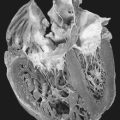33. Fanconi Syndrome
Definition
Fanconi syndrome is an autosomal recessive, inherited disorder characterized by pancytopenia, bone marrow hypoplasia, and patchy brown skin discolorations resulting from melanin deposits. The melanin deposits are associated with multiple anomalies of the musculoskeletal and genitourinary systems.
Incidence
A true estimate of the frequency of Fanconi syndrome is not available. This disorder develops in association with several conditions, either inherited or acquired.
Etiology
Fanconi syndrome can be inherited, secondary, or idiopathic. The idiopathic form does not have an identifiable cause. Some cases are inherited.
Causes of Fanconi Syndrome
• Cystinosis
• Drug ingestion (tetracycline toxicity, aminoglycosides, cisplatin, ifosfamide, 6-mercaptopurine, valproic acid)
• Dysproteinemias
• Galactosemia
• Glycogen storage disorders (e.g., Fanconi-Bickel syndrome∗)
∗See Appendix G: Rare Syndromes.
• Heavy metal exposure (cadmium, lead, mercury, platinum, uranium)
• Hereditary fructose intolerance
• Inborn error of amino acid and carbohydrate metabolism
• Lowe syndrome
• Mitochondrial cytopathies
• Type I tyrosinemia
• Wilson’s disease (see p. 355)
Signs and Symptoms
• Acidosis
• Dehydration
• Growth failure
• Hypokalemia
• Hypophosphatemia
• Osteomalacia (adults)
• Polydipsia
• Polyuria
• Proteinuria
• Rickets (children)
Medical Management
Management of Fanconi syndrome is predicated on the manifested symptoms. Dehydration resulting from polyuria should be prevented. Free access to water is essential. Treatment should be provided via oral and/or parenteral fluid administration.
Metabolic acidosis is generally corrected with 3 to 10 mg/kg/day of sodium bicarbonate in divided doses. A diuretic may be administered to avoid volume overload, but this causes increased potassium wasting, which must be treated with potassium supplements.
Metabolic acidosis treatment/correction is helpful but is not sufficient for the treatment of bone involvement. The bone involvement must be treated with phosphate and vitamin D supplements.
Liver or kidney transplantation may be necessary to treat the failure of either organ.
Complications
• Congenital cataracts
• Glaucoma
• Hypothyroidism
• Liver failure
• Mental retardation
• Psychiatric disorders
• Renal failure
• Visual impairment
Anesthesia Implications
Fanconi syndrome can result from heavy metal poisoning. Heavy metals can interfere with the metabolism of nondepolarizing muscle relaxants.
Dehydration is a real risk at any time in the patient with Fanconi syndrome. As a result, NPO duration should be kept to the safest tolerable minimum time.
The patient treated with diuretic therapy should also have the electrolyte levels determined immediately before surgery, paying particular attention to the potassium concentration. Potassium supplementation may be required.
Arterial blood gas analysis may be needed in conjunction with monitoring the electrolyte levels to determine the current state of acid-base balance. The patient with Fanconi syndrome is susceptible to bicarbonate loss resulting in metabolic acidosis. The patient’s system may attempt to compensate by inducing respiratory alkalosis. This situation needs to be monitored to ensure that the altered respiratory pattern during general anesthesia does not exacerbate the metabolic acidosis. Adequate ventilation during general anesthesia may require supplemental administration of sodium bicarbonate and should be guided by serial arterial blood gas analyses during anesthesia.
Because of the potential need for multiple blood samples, insertion of an arterial pressure line may be appropriate (even considerate) for the patient.
Liver function testing is of particular concern for the patient with long-term Fanconi syndrome, especially those with associated Wilson’s disease (p. 355) or tyrosinemia.
The patient may be developmentally delayed and have significant speech impairment due to associated galactosemia. Therefore extra effort and patience may be required of the anesthetist to foster patient understanding and cooperation before administering the anesthetic.
Because of the patient’s possibly altered NPO status as well as the potential for renal failure, general anesthesia should be accomplished via rapid sequence induction.
Selection of the volatile agent for maintenance of general anesthesia should be guided by the patient’s degree of renal involvement or dysfunction. Regional anesthesia may be appropriate, but fluid resuscitation must be tempered by the degree of renal dysfunction.
Metabolism of various anesthesia-related medications, from nondepolarizing muscle relaxants to midazolam to opioid analgesics, may be altered as a result of the degree of liver dysfunction.







